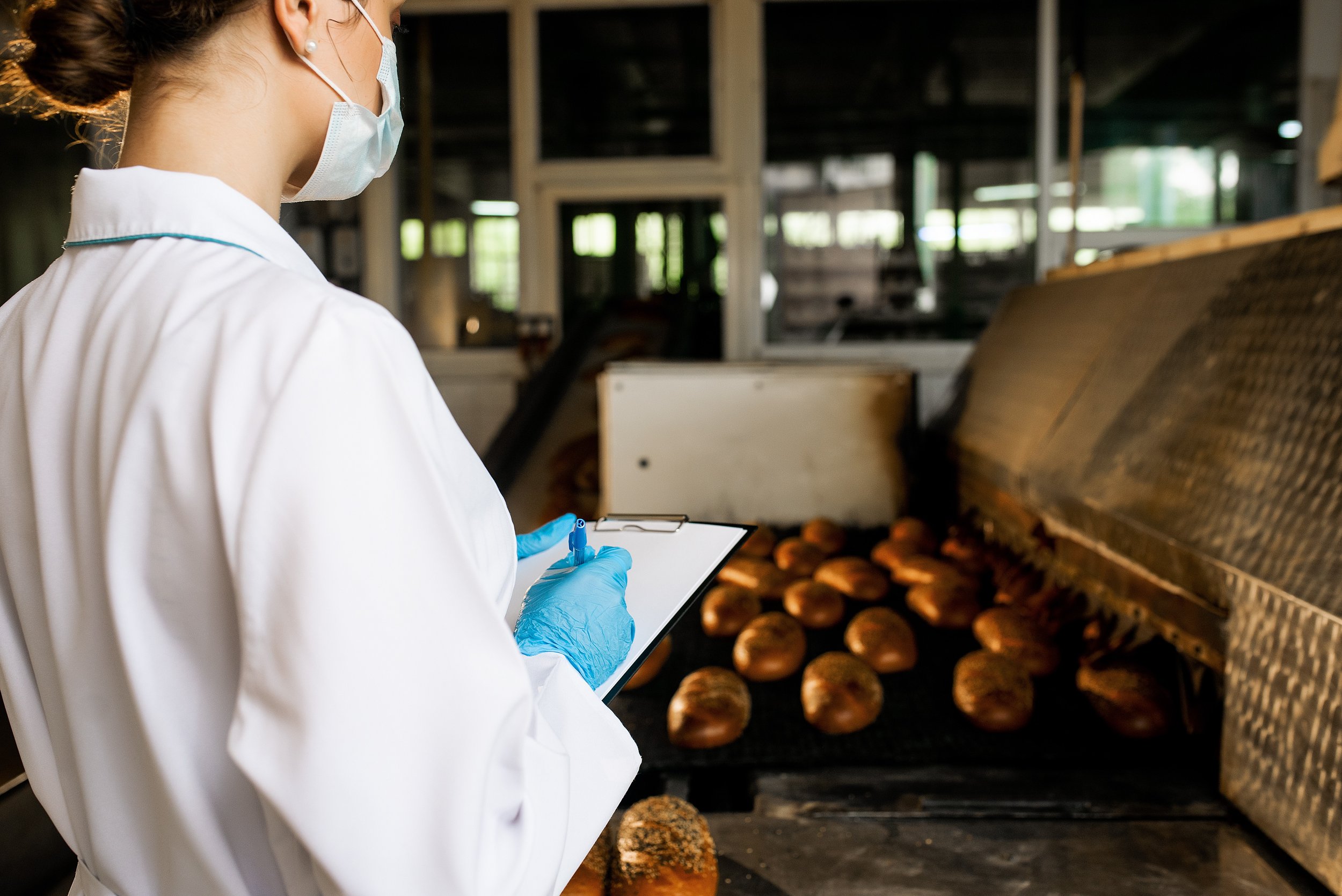Get on board with food safety audits
Food safety must be a top priority for your food business. Every year, thousands of people get sick from foodborne illnesses. This is why food safety audits are so important. They help to ensure that food businesses have the processes in place and more importantly are following them, to ensure their food is safe for customers and free from harmful hazards.
Food safety auditor carrying out an audit in a bakery
What is the purpose of a food safety audit?
A food safety audit is an in depth inspection of a food manufacturing or catering business. It’s purpose is to ensure that the business is complying with all the relevant food safety and allergen regulations and good practice standards.
Audits are carried out by qualified food safety auditors or consultants who may be EHOs but should be trained to identify the same potential risks and hazards in food production and handling that food hygiene inspectors look for.
Why are food safety audits important?
Firstly, they help to ensure that food is safe to eat, by identifying potential hazards and risks such as cross contamination or poor temperature control, auditors can help prevent food borne illnesses from happening.
Secondly, they check that food businesses are complying with the relevant food safety regulations and standards, including the structure of the walls, floors, ceilings, ventilation, drainage, waste management as well as HACCP documentation. This helps to protect consumers and maintain public trust in the food industry.
Finally, they can help food premises to identify areas where they can improve their processes and procedures. This can lead to better efficiency and productivity, as well as improved food safety.
“Helen has given us some excellent advice to enable us to maintain our 5 star Rating. Her knowledge, expertise and honest feedback has been invaluable to us. I would highly recommend her services whether you already have high standards and want some reassurance or if you are struggling to bring your establishment up to the standard expected by the local authority”
How are food safety audits carried out?
Dishes of italian food
Audits are typically carried out by third-party auditors who are trained and have auditing or food safety inspection qualifications and experience. The advantage they have over being a member of staff in the business is they can provide a ‘fresh pair of eyes’ and a new perspective.
Auditors will visit the food premise and check all of the areas related to food production, including storage and service of food. They will also check handling of food, handwashing and staff cleanliness as well as practices such as cleaning practices, pest control measures, food shelf-life labelling, temperature control and management of allergens.
During the audit, they will review documents and records related to food safety and allergens, inspect the premises for potential hazards, and chat to employees to ensure that they are trained to handle food safely and are following company procedures.
What is the main purpose of an audit report?
An audit report usually details the non compliances with photos as evidence and makes recommendations for improvement. This gives the food business an actionable plan and the information they need to address any issues identified at the time of the audit and the corrective actions required to make sure they don’t happen again.
Food safety audits can help businesses to make sure they achieve a consistently good standard and when inspected by their local authority are awarded a level 5 or ‘Very Good’ food hygiene rating(if included in the FHRS scheme)
Audits - an essential part of your food safety tool box
Food safety audits are a critical part of any food business owner’s toolbox. The main goal of the audit is to ensure that food that is prepared and served is safe for customers every time. It also helps food businesses to maintain public trust in their business and the food industry as a whole.
Remember that a 3rd party audit will only give a snap shot of food hygiene standards at the time of the audit. Therefore, it is also important for managers to do a weekly spot check and for staff to complete monitoring checks such as temperature checks, cleaning schedules, opening and closing checks every day.



